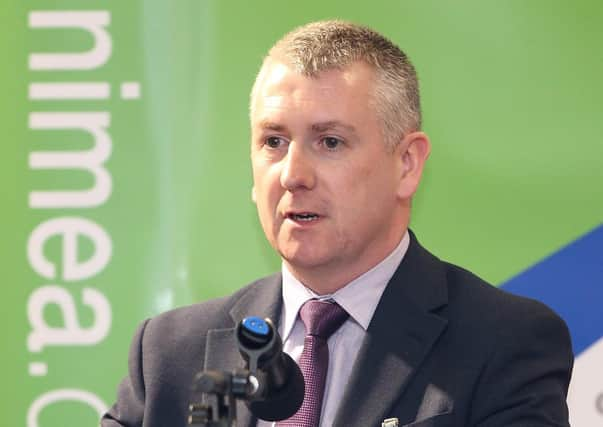Meat exporters express concern at Climate Change Bill


The Northern Ireland Meat Exporters Association (NIMEA) said it is shocked that the bill has set a target for Northern Ireland to reach net-zero emissions by 2045 without undertaking any form of impact assessment on the possible cost to the Northern Ireland economy.
NIMEA has also raised concerns that the Bill disregards advice of the UK Government’s Climate Change Committee (CCC), which recognised the importance of livestock farming to the local economy and recommended against setting net-zero targets for Northern Ireland because of the importance of the sector.
Advertisement
Advertisement
Conall Donnelly, Chief Executive of the NI Meat Exporters Association, said: “Our industry agrees that climate change legislation is necessary and is committed to making a significant contribution to reducing its carbon footprint.
“Work at business, industry and agricultural policy level is intensifying and a lot has already been achieved. As an agri-food industry that directly and indirectly employs over 129,000 NI workers, accounting for nearly a quarter of the private sector employment, we have to play our part and get this right.”
He added: “Given the wide ranging and cross-cutting impact, we are alarmed that the assembly could pass such a bill without a proper understanding of the economic impact and in the process, disregard previous expert advice provided by the CCC. The climate change bill must be backed by evidence, fully impact assessed with targets and timeframes that are achievable without damaging the rural economy.”
The industry is also alarmed at comments made in a meeting this week between farmers and the co-sponsors of the bill.
Advertisement
Advertisement
Mr Donnelly said: “Farming sources tell us that the bill sponsor is quite accepting of the effect that the bill would have in halving NI livestock production, that the shortfall in UK production could be offset by importing more produce from global suppliers and proposes retraining our farmers to work in different jobs. This would have a phenomenal impact on the rural economy.
“Data from the Climate Change Committee indicates that the carbon footprint of NI beef is 250% below the global average. This means we could forgo thousands of valuable jobs in our rural economy in return for a policy that drives agricultural imports from global competitors with higher emissions, lower animal health standards and additional transport emissions. This will not reduce global emissions, but it will wreck our farming and food industry.”
He added: “We are confident that as an industry we can rise to the climate challenge. The work of our industry is intensifying in this area and we expect a new agricultural policy which will strongly complement industry initiatives. Climate change legislation that operates with the interests of farmers and the rural economy in mind will ultimately serve the environment best.”